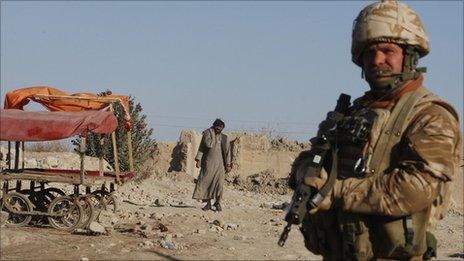Afghan interpreter Javed Hotak 'let down' by UK government
- Published
Ex-Afghan soldier's anger after UK asylum request refused
An Afghan who says he was an interpreter with British forces says the government has committed a great injustice by not granting him asylum.
Javed Hotak said he was sent death threats by the Taliban and feared for his life if the Home Office sent him back to Afghanistan.
He has been living in Birmingham while he makes a third claim to stay.
The Home Office said all asylum cases were considered on individual merits.
Latest reaction plus more Birmingham stories
Documents seen by the BBC relating to one of Mr Hotak's failed asylum claims show the Home Office disputes the threats to his life are genuine.
Mr Hotak said he was a soldier and interpreter for two years with the SBS (Special Boat Service) and the SAS, operating as a "quick reaction force" attacking Taliban compounds, including in Helmand and Kandahar.
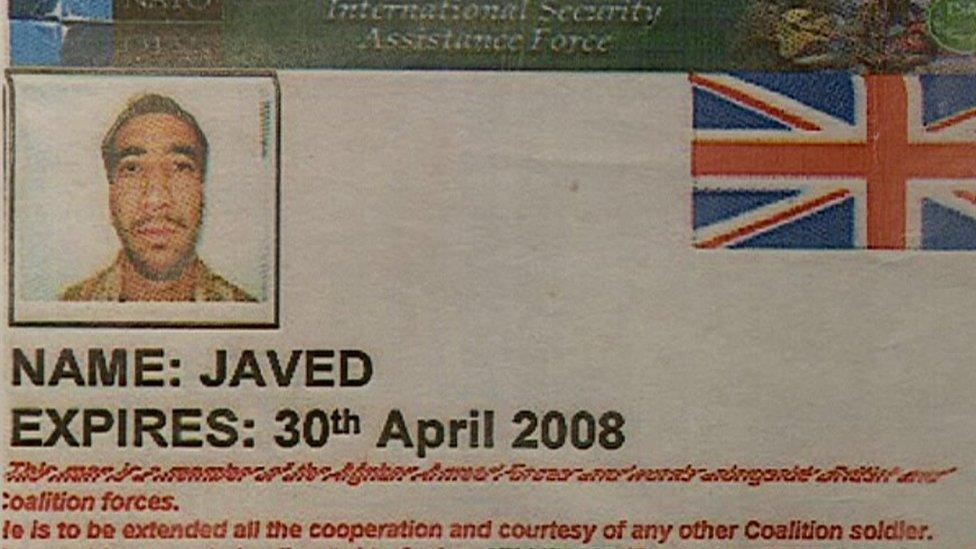
Mr Hotak said he was a soldier and interpreter for British forces
But three years after British troops withdrew from the country, he said he now "feels ashamed" and regretted working with them.
Lord Ashdown, former leader of the Liberal Democrats, who has campaigned on behalf of Afghan interpreters, said it would be "shameful" if the British government deported him.
'Saved heroes'
"That will be an appalling act by our government and... it will be ministers of the Crown and the government [to blame], and what is, I think, an act which is as shameful as any I can remember of the British government."
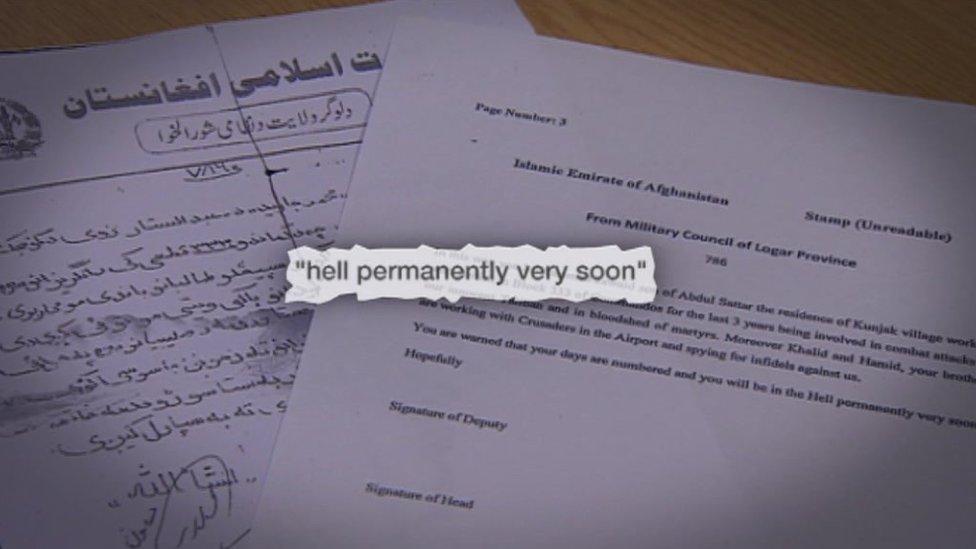
Mr Hotak said he had letters from the Taliban saying he would be killed. The documents have not been verified by the BBC
He said they were relied upon by troops and it was just "common sense" and an "honourable act" by the UK to give the interpreters refuge if they had been threatened by the Taliban.
Mr Hotak's first claim for asylum was rejected by the Home Office in 2011 after he arrived in the UK - via the Jungle in Calais - in a lorry two years earlier.
After the Iraq war, the British government gave Iraqi interpreters either one-off financial assistance or exceptional indefinite leave to remain in the UK with help to relocate, or the opportunity to resettle.
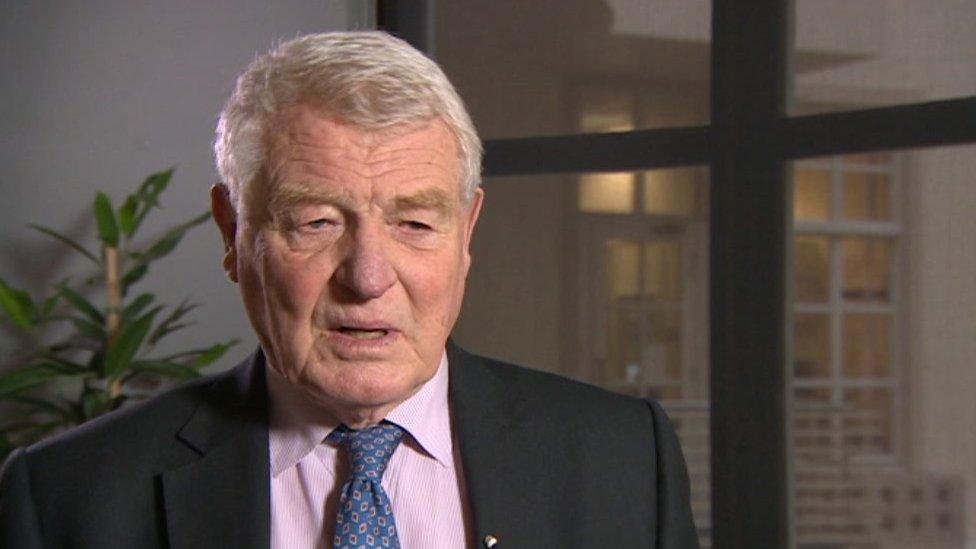
Lord Ashdown said it would be "shameful" if Mr Hotak was returned to Afghanistan
Mr Hotak said he was angry his military service had not helped him.
Relying on friends for accommodation, he said he was suffering, not able to live a life.
He said: "You call them heroes. We saved your heroes.
"We interpreted for them. They just used us and leave us.
'Debt of gratitude'
"If you cannot take the responsibility, don't send your troops.
"Maybe we work for somebody else, now we would be safe."
The Ministry of Defence said 360 former staff, mostly interpreters and their families, had so far been relocated to the UK.
It added: "We owe a debt of gratitude to the brave locally-employed civilians who played such a pivotal role in helping our troops build a more secure Afghanistan."
A UK government spokesperson said: "All asylum cases are carefully considered on their individual merits and based on evidence provided by the applicant.
"While we cannot comment on this specific case, all asylum claims are carefully considered on their individual merits and based on evidence provided by the applicant."
The government said its Locally Employed Civilian (LEC) Assurance Committee was now working with one former Afghan interpreter in the UK to ensure that any Afghan staff who feel threatened after being employed by the British military get support in the UK and Kabul.
- Published23 June 2016
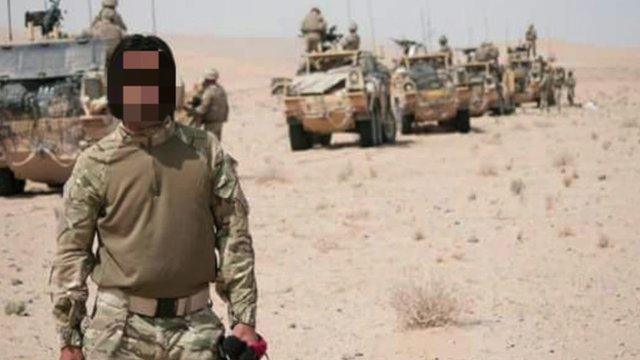
- Published8 July 2015
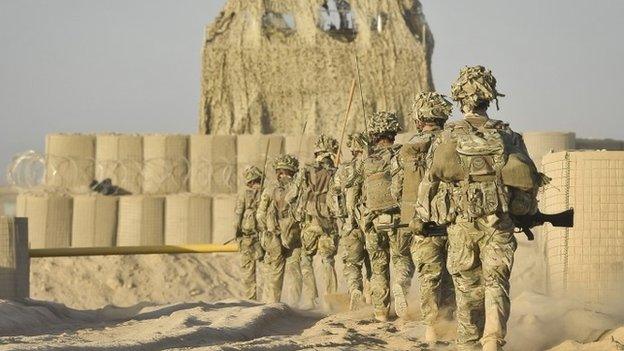
- Published22 May 2013
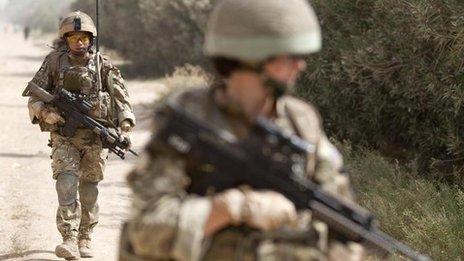
- Published19 December 2012
